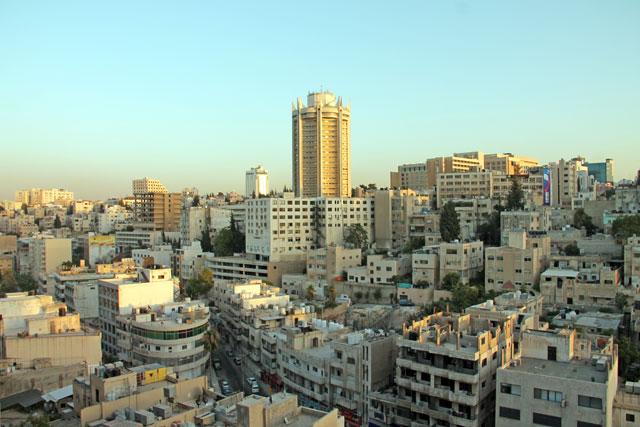You are here
Dutch scholar examines role of non-state actors in aid distribution
By Johanna Montanari - Oct 13,2019 - Last updated at Oct 13,2019

The context of the report is the UN World Humanitarian Summit, which was held in Istanbul in 2016 with the aim to fundamentally reform the humanitarian aid industry (Photo courtesy of World Vision International Facebook page)
AMMAN — Non-state actors claiming public authority should not be ignored by international aid agenda focusing on municipalities in order to reach the most vulnerable populations, argued a Dutch scholar in a report published recently.
The report titled “Beyond Municipalities: Understanding Authority in Low-Income Urban Neighbourhoods in Jordan and Lebanon” offers “key considerations for designing and implementing humanitarian and development interventions in low-income urban areas governed by multiple public authorities”.
The author of the report, which was funded by The Netherlands Organisation for Scientific Research — WOTRO Science for Global Development (NWO-WOTRO), is Dolf te Lintelo, a Research Fellow at the Institute of Development Studies (IDS) based at the University of Sussex in the UK.
“We believe passionately that cutting-edge research, knowledge and mutual learning are crucial in shaping the transformations needed to reduce inequalities, accelerate sustainability and build more inclusive and secure societies,” IDS writes on its website.
The context of the report is the UN World Humanitarian Summit, which was held in Istanbul in 2016 with the aim to fundamentally reform the humanitarian aid industry to react more effectively to today’s crises, and called for making humanitarian action as local as possible.
“When millions of Syrians fleeing civil war sought refuge in Jordan and Lebanon from 2011, initial efforts by the international humanitarian community targeted supporting national governments,” the report said, adding that these efforts shifted to recognising the vital role of municipalities.
“There are, however, good grounds to consider that, significantly, municipalities are not the only local actor governing (the relations between host and) displaced populations in urban areas,” the report noted, adding that these include “a wide range of governance actors”.
The report stated that humanitarian and development activities critical to achieving human protection objectives may be in tension with the attainment of geopolitical goals of stabilisation and state-building, where the former underwrite the legitimacy of local non-state actors, adding that “the reverse may be true too, where the absence of programming by municipal authorities and the international community allows non-state actor service providers to be the only authority in the area”.
Responders should recognise that local state and non-state authorities, which in many cases are intricately related, draw on a range of claims to legitimacy, by providing welfare, security and conflict resolution, controlling territory and monitoring populations, the report said, adding that “humanitarian actions, whether conducted or withheld, intervene in local struggles for power and authority, as a source of legitimacy”.
“Due to the extremely limited existing literature on the subject, there is an acute need for substantial primary data collection to support deeper knowledge and assessment tools for assessing the legitimacy effects of humanitarian and development interventions for state (including municipal) and non-state actors governing low-income urban informal settings”, the report concluded.
Related Articles
AMMAN — Amman hosts 32 per cent of the 1.4 million refugees currently living in Jordan, a recent report by the World Bank and Feinstein Inte
AMMAN — The Arab Renaissance for Democracy and Development (ARDD), the Leaders of Tomorrow Organisation and the East and West Centre for Sus
LONDON — Iraq and Syria saw a sharp drop in the number of people killed in terror attacks last year, a report published on Thursday by Jane'


















